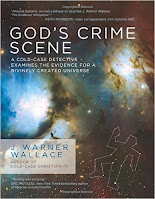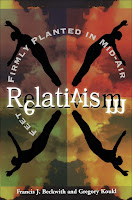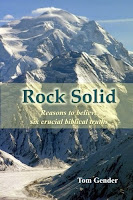"Humility demands that Christians hold interpretations of controversial passages somewhat tentatively, expressing a willingness to learn more. No matter how much study anyone devotes to an issue...room still exists to improve understanding."
"Literal interpretation, properly understood, is a method of interpretation that gives full weight to all aspects of a passage's context, including the immediate textual context, the literary genre of the passage, the way words were used in the culture, the historical setting and purpose of the text, and the broader theological context."
"No single passage reveals the entire masterpiece. At best, each text uncovers an element or two. By fitting these pieces together and discovering their nuances, one can begin to see and make sense of the overall picture...Assuming a big picture from just one or two parts can lead to a distorted whole."
"To interpret the Bible literally is not enough, one must also interpret it with internal (as well as external) consistency."
"People who seem most concerned with defending biblical inerrancy may be the most resistant to any information derived outside the Bible that might help illuminate what the Bible means. Logically, taking Scripture seriously means being passionately concerned about interpreting it correctly and thus welcoming any evidence that exposes erroneous understandings of Scripture. Unfortunately, many zealous Bible believers confuse their favored interpretations of the Bible with the Word of God itself."
"The Bible teaches a dual, consistent revelation. Just as readers rightfully expect valid interpretation of Isaiah to be consistent with that of Mark, so too they can expect accurate interpretation of the facts of nature to be consistent with the message of Genesis and the rest of Scripture."
"Since God created the cosmos, there can be no contradiction between what He has made and what He has spoken through the inspired writers of Scripture. The testimony of both will always agree, and we need never back away from facts that may appear daunting to our faith. We need only study and investigate further, checking for accuracy--the accuracy of scientific interpretations and the accuracy of biblical interpretations."
"Constructive integration advocates freely acknowledge that conflicts can and do arise between theology and science. After all, theology is not the same as the words of the Bible. It is the human effort to interpret the Bible's words. Neither is science equivalent to the record of nature. It is the human attempt to interpret nature, past and present. Because human knowledge must always be incomplete and to some degree biased, both theologians and scientists sometimes arrive at incorrect conclusions about Scripture and nature, despite God's rendering these records perfectly reliable and trustworthy."

"When science appears to conflict with theology, we have no reason to reject either the facts of nature or the Bible's words. Rather, we have reason to reexamine our interpretations, because the facts of nature and Scripture will always agree."
"In no way does God's revelation via the universe detract from the importance of His written revelation. Nor does this belief in the trustworthiness of nature's message imply that God never intervenes in the natural realm by performing miracles. It does mean that when He performs such miracles God does not remove, hide, or distort physical evidence for them."
"We want to have our ideas tested. We are persuaded that our positions today are going to need adjustment as we gain more understanding...we need some diversity; we need open dialog. What I'm concerned about is that we have so much hostility in this dialog and that needs to be replaced with a more humble spirit where we say, 'Chances are we are both wrong in part, at least, and we may discover that we need to develop something new that none of us have thought of.' How are we going to discover that if we don't have open dialog without the threat of hostility?- where we say, 'we're making progress together. We're allies; we're not enemies. We're allies working together toward the common goal'."
"Truth holds no threat for the Christian. Truth in the scientific arena, which can be directly or indirectly tested, will always be consistent with truth in the spiritual arena. And, despite protestations from all sides, truth in nature must be connected with something, or Someone, beyond the natural realm—the something or Someone responsible for nature’s existence and characteristics."
"Perhaps the most tragic aspect of denying nature's scientifically established characteristics is that such a denial forces the rejection of timely, compelling evidence for the God of the Bible and for the accuracy and authority of His Word."
These quotes can all be found in Dr. Ross' books "Navigating Genesis" and "A Matter of Days" and various other resources available at Reasons to Believe.
More quotes from Dr. Ross may be found here:
10 Quotes from Dr. Hugh Ross on Why The Universe Is The Way It Is





















